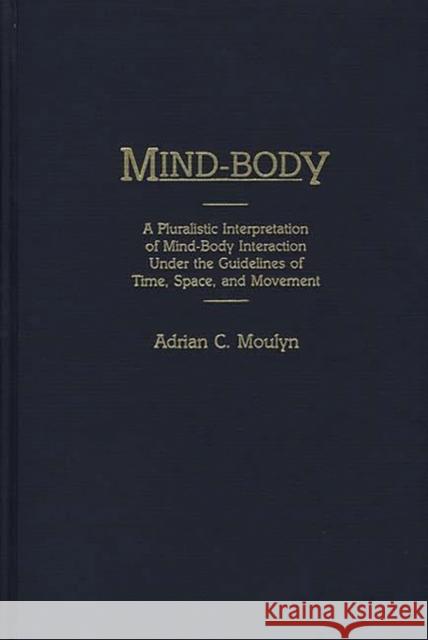Mind-Body: A Pluralistic Interpretation of Mind-Body Interaction Under the Guidelines of Time, Space, and Movement » książka
Mind-Body: A Pluralistic Interpretation of Mind-Body Interaction Under the Guidelines of Time, Space, and Movement
ISBN-13: 9780313273513 / Angielski / Twarda / 1991 / 192 str.
Mind-Body: A Pluralistic Interpretation of Mind-Body Interaction Under the Guidelines of Time, Space, and Movement
ISBN-13: 9780313273513 / Angielski / Twarda / 1991 / 192 str.
(netto: 268,95 VAT: 5%)
Najniższa cena z 30 dni: 279,51
ok. 30 dni roboczych
Bez gwarancji dostawy przed świętami
Darmowa dostawa!
In this innovative work, Moulyn examines some of the most fundamental questions arising from human experience: Why do we feel and behave as if mind and body are separate entities? What is the actual relationship between them? Dissatisfied with the common philosophic view that categorically separates body and mind by placing one in space and the other in time, he proposes an objective and subjective timespace to explain mind-body interaction and create a basis for unity and inner harmony.
Choosing a point at which body and mind intersect, the author focuses on the neuromuscular and psychological nature of movement and distinguishes between two kinds of movement: mechanical and purpose-striving. He places mechanical movement in objective timespace while purposeful movement, which is linked to mental activity, he assigns to subjective timespace. This schema is used to explore a range of physical/psychological phenomena, including the reasons for the human tendency to separate mind from body and time and space; the implications of human foreknowledge of death; the evolutionary development of body-mind interaction; mental processes; the concepts of self, ego, and soul; and the question of creativity. Providing a new perspective on a fundamental human dilemma, this work is relevant to studies and classes in neurophysiology, philosophy, humanism, and the philosophy of science.











